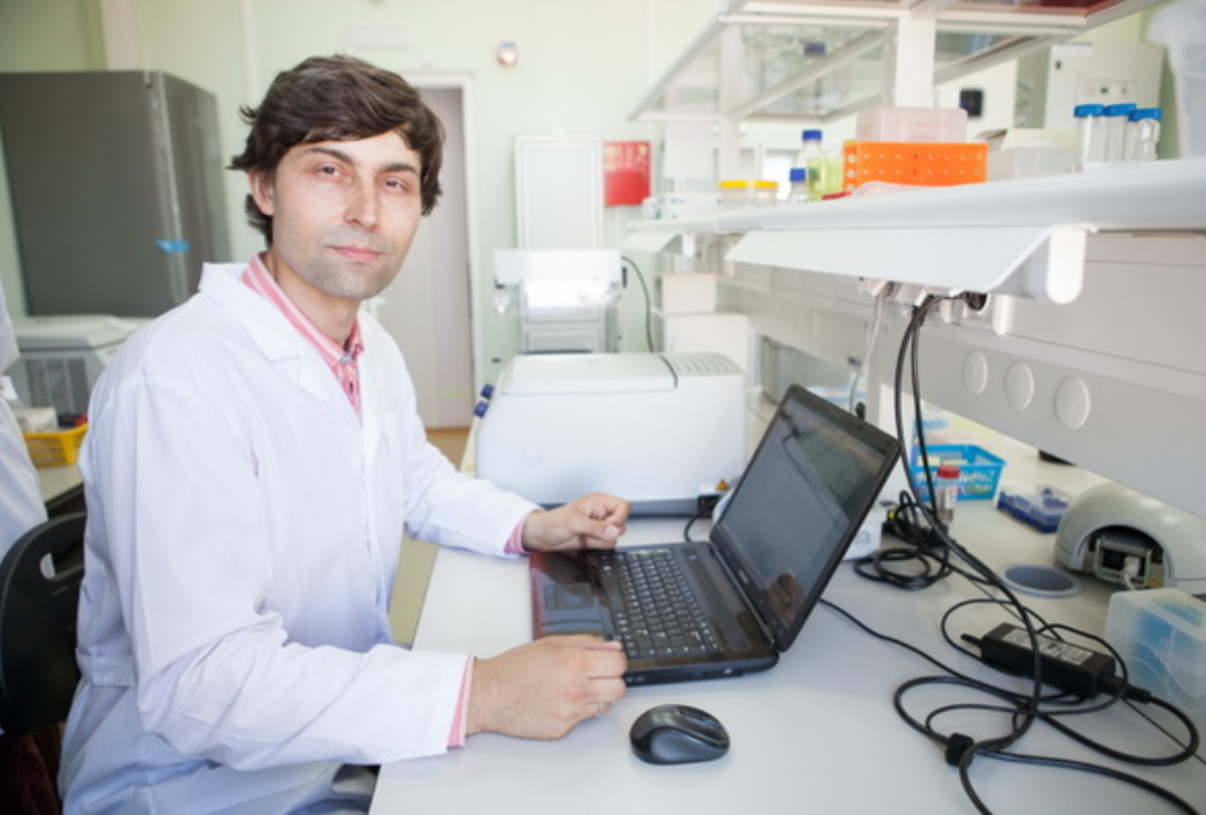Researchers develop a stable and flexible nanocomposite for bioelectronic prostheses

A team of researchers from St Petersburg University, Sirius University of Science and Technology, Pavlov Institute of Physiology of the Russian Academy of Sciences and other Russian research universities have developed a technology for manufacturing metal-free, stretchable and biointegrated neuronal implants. The researchers have already proven high efficiency of the proposed technology for monitoring and stimulation of neuronal activity in mammals.
Currently, neuroprosthetics is becoming more and more available for widespread clinical use. Neuronal prostheses are used to restore functions lost as a result of neural damage: to replace the damaged photoreceptors in the retina; to restore the auditory, sensory, motor function, or control over voluntary movements.
The research findings are published in the journal Composite Part B: Engineering.
There are still a number of issues in neuroprosthetics that researchers are to overcome. One of the challenges is the development of electrode interfaces with optimal mechanical, electrical and biological properties. Carbon-based nanomaterials, such as carbon nanotubes (CNTs), nanofibers (CNFs), and graphene that have the required properties are considered promising materials for neuronal stimulation applications.
The Principal Investigator for the project is Professor Pavel Musienko, Doctor of Science (Medicine) and Head of the Laboratory of Neuroprosthetics at the Institute of Translational Biomedicine of St Petersburg University. According to Professor Musienko, due to the complexity in integrating CNT and CNF surfaces into conventional microfabrication, flexible electrodes based on carbon nanomaterials are not yet in common use. Recently, however, the researchers from St Petersburg University, together with their colleagues from Sirius University of Science and Technology, Pavlov Institute of Physiology of the Russian Academy of Sciences and other Russian universities, have developed a technology for producing soft bioelectronic neuronal implants with electrodes based on carbon nanotubes. The proposed technology is relatively simple and economical. It allows for producing a nanocomposite material with a high flexibility, biointegration and functional stability.
Previously, researchers led by Professor Pavel Musienko and Professor Ivan Minev from the University of Sheffield developed a technology for printing personalised neuroprostheses on a 3D bioprinter. In the near future, this technology is believed to enable production of patient-specific neuronal implants. The research findings are published in Nature Biomedical Engineering.
The researchers have developed a unique stretchable, metal-free, electrically conductive composite material based on silicone and carbon nanotubes. They described in detail the steps of the proposed technology from preparation of raw materials and casting of metal molds through to the fabrication of soft spinal matrices, which have been successfully tested for monitoring and stimulation of neuronal activity in mammals.
Pavel Musienko explained that nanotubes in the nanocomposite material are in the bound state. Hence, they do not cause undesirable side effects, such as tissue damage or autoimmune reactions.
Working on this project, the researchers used the equipment of the Centre for Innovative Technologies of Composite Nanomaterials of the St Petersburg University Research Park.
The newly-developed bioelectronic neuroprosthesis has been successfully tested for safety and efficacy. In particular, a series of experiments showed that electrical stimulation of neuronal networks effectively restores locomotion in paralysed laboratory animals. It has been also demonstrated that the neuronal implant can be used for monitoring the neuronal activity and controlling the spinal neuronal networks.
‘We have also tested our neuronal implants with electrodes made of a nanocomposite material under particularly difficult conditions, in which the mechanical properties of the material must be as close to those of neural tissue as possible. Conventional flexible electrode made of metal compounds cannot be used in such conditions because this can lead to nervous tissue damage, internal bleeding and disturbances of physiological functions,’ Pavel Musienko emphasised. ‘Our neuronal implant is very soft and stretchable, which allows for implantation in close proximity with the spinal neurons in the epidural space. This opens up new possibilities for more selective neuromodulation and registration of spinal cord evoked potentials.’ However, although biocompatibility tests have shown good results, further studies are needed to eliminate the side effects associated with the prolonged use of neuroprostheses.
Among the project participants are also researchers from: the Research Centre of Neurology (Moscow); Tambov State Technical University; Federal Centre of Neurosurgery (Tyumen); Sechenov First Moscow State Medical University; Peoples’ Friendship University of Russia (Moscow); Research Institute of Medical Primatology (Sochi); National Research University of Science and Technology "MISIS" (Moscow); and Moscow Institute of Physics and Technology "MIPT".
According to Pavel Musienko, the proposed technology for producing neuronal implants with electrodes made of nanocomposite materials is simple, economical and based on conventional manufacturing technologies. These advantages, as well as the results of the study, suggest the potential for the mass production of implantable electronics.

